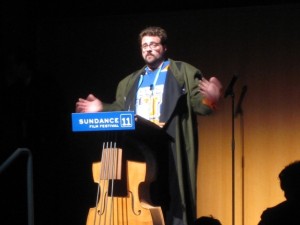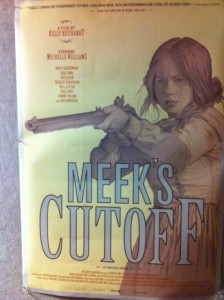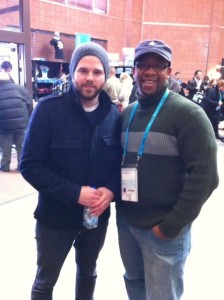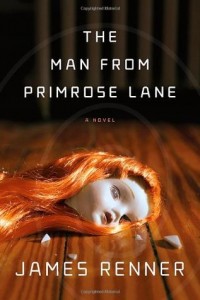Video review
Oldboy (2013)
Rated R

Good Universe/Vertigo Entertainment
In Oldboy, Joe Doucett (Josh Brolin) slaughters a dozen men during a battle royal up and down a sparse warehouse corridor. This film too was slaughtered at box office. That director Spike Lee’s remake of the fantastic 2003 South Korean film bombed confuses me. He’s a gifted director, regardless of how you receive his politics or social activism, and the original is a movie so good even a mediocre director would have to go out of his/her way to ruin it. So how did this happen?
 I’m not sure, but don’t miss the opportunity to give this overlooked drama/thriller a chance now that it’s available on DVD. Be warned, though, that like the brutal, uncompromising original, its taboo subject matter revealed in its final act is not for all sensibilities.
I’m not sure, but don’t miss the opportunity to give this overlooked drama/thriller a chance now that it’s available on DVD. Be warned, though, that like the brutal, uncompromising original, its taboo subject matter revealed in its final act is not for all sensibilities.
Much of the original story remains intact, though relocated to an American city, of course. Beginning in the early 90s, we meet Doucett as a slimy, perverted drunken ad exec who misses his daughter’s third birthday party for sake of a do-or-die client meeting he quickly destroys through his piggish behavior. Doucett is the type of guy you suspect would have missed his daughter’s birthday regardless, and is quick to tie one on after a night of abject failure. We know the drill: vomit, urine, tears, a meek attempt at reconciliation. We’d feel sorry for him if he wasn’t such a slimeball who deserved everything happening to him.
After that intro, he awakens alone, locked in what appears to be a modest hotel room, hung over, confused. He will remain in this room for 20 years. As he round-robins through fear, anger, sadness, suicidal thoughts—and takeout dumplings—a television offers hints at the changing world outside: The Clinton years, the George W. years—including the Sept. 11 attacks and the second Iraq war—and into the Obama years. The TV also offers martial arts programs, which help him tune up his flabby physique; an exercise program, whose comely female host becomes a sexual surrogate; and most importantly, a true-crime show that details the rape and murder of his ex-wife, the frame-up that makes the missing Doucett the suspect, and the subsequent adoption of his daughter.
This is a terrific first act.
Just as he’s about to execute a years-in-the-making escape, he’s gassed and released, provided with an envelope of money, an iPhone and cool sunglasses. Doucett knows what needs to be done: find his daughter, create a long list of people he may have wrong and set off on a mission of revenge. By the way, years of studying martial arts on TV can be put to good use in the real world.
In his search, Doucett meets two key people. The first is a caring social worker and former drug addict (Elizabeth Olsen, Martha Marcy May Marlene, Godzilla) who reads the never-mailed letters Doucett wrote for his daughter while locked away and is moved by his plight. The second is the shadowy figure (Sharlto Copley, District 9) who is responsible for Doucett’s incarceration. This guy’s an effeminate, obscenely rich, seemingly all-knowing puppet master, who’s obviously demented. He makes Doucett an offer that makes up the second act of the film. Doucett has to discover who this man is and why he imprisoned him for 20 years. If he can accomplish this in 48 hours, the mystery man will confess to being the real culprit in his wife’s death (which he proves with a sickening video), pay Doucett millions of dollars, free his daughter (who the man maintains he has captured) and finally commit suicide.
The rest of the film plays out as a cat-and-mouse drama, love story and fight film leading to the big twist of the third act.
Brolin’s (Sin City: A Dame to Kill For) antihero is as grungy and nihilistic as actor Choi Min-shik’s version in the original; however the former’s character seems driven by obsession and trauma, while the latter’s performance has those plus a layer of insanity.
I think the film gets a lot right. It respects Chan-wook Park’s original, paying subtle homage to the infamous squid scene and the nasty tongue scene. And in a couple instances it one-ups its predecessor with the neat use of smartphone technology and a box cutter; it even sidesteps the hypnosis scenes I thought were the most contrived elements of the original film.
Park is nearly peerless in his cinematic framing, visual composition and shock imagery; his skills move his nasty genre effort to elegant heights at times. Lee doesn’t mimic Park, but relies on his own talents in tonal shifts, image repetition, his trademark “floating” double dolly shot and complex music cues to make scenes snap. While I don’t think Lee’s film captures character quirks and complexities as well as Park’s, the impact of Lee’s tweaked final act still shocks, disgusts, saddens.
So what’s going on? How did a movie this good fail so shockingly at the box office? We might factor in Lee’s controversial nature—did it bring perceived baggage to a genre film? (It certainly didn’t to his Inside Man.) Also, the original was a masterwork that has gained cult-film status; it’s always tricky to tamper with that kind of work. I recall casting changes, the film’s release date being shuffled around, and talk of studio interference of the final edit. If its failure was a matter of poor timing and promotion, it’ll find a good life on home video.

| Marvin Brown’s Movie Review Archive








 I’m not sure, but don’t miss the opportunity to give this overlooked drama/thriller a chance now that it’s available on DVD. Be warned, though, that like the brutal, uncompromising original, its taboo subject matter revealed in its final act is not for all sensibilities.
I’m not sure, but don’t miss the opportunity to give this overlooked drama/thriller a chance now that it’s available on DVD. Be warned, though, that like the brutal, uncompromising original, its taboo subject matter revealed in its final act is not for all sensibilities.








